Results
-
 £144.99
£144.99Festa Paesana - Jacob de Haan
Lunteren, a village on the Veluwe (a wooded region in the Netherlands), sets the scene annually for a village festival dominated by folklore. Festa Paesana (Italian for village festival) is set to music by several folkloric sketches. The theme in Festa Paesana is partly based on a Dutch anthem (Wien Neerlands bloed); when other lyrics are used it is also known as the Lunteren anthem.The work begins with a festive introduction, completed by chimes and drums, in which pieces of the Lunteren anthem are heard. The music then transitions to represent a horse auction. We hear horses run their first rounds in the auction ring while being whipped. The following theme is partly basedon the anthem. The tension of the traditional auction is amplified by an ever-increasing cadence, reaching its climax when the word ?Sold!? is shouted. The night ends with a majestic variation on the Lunteren anthem.The next morning, when the tower clock hits seven times, the village is awaked by the reveille of the heralds. In a fugatic version of the anthem, we can hear the village slowly come to life. This evolves with the chiming of all towers in the village; the celebration can begin. Carriages drawn by horses rumble through the village and thus, it is easy to hear when a horse hesitates or runs amuck. A traditional folk dance group then dances a whirling waltz while the audience shares their pleasure. Musicians march along the scene and take over the waltz theme in their march. Until deep in the night, the musicians are still heard playing in the streets. Meanwhile, we hear the anthem theme being played in a choral variation (in minor). The first time it is played quietly, as a preparation for Sunday. Then it is played in a celebrating way, enabling the devout village residents to remember the past pleasant celebration with satisfaction.
Estimated dispatch 7-14 working days
-
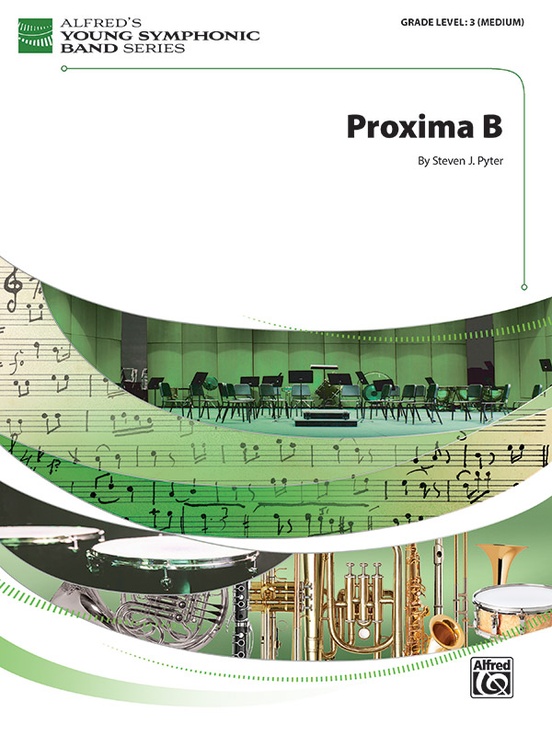 £73.50
£73.50Proxima B (Concert Band - Score and Parts) - Pyter, Steven J.
Where in the galaxy, other than Earth, could human life survive? Proxima B may be the answer to this cosmic question. The planet orbits the red dwarf star Proxima Centauri, the closest star to our Sun. First discovered in 2016, NASA says, The exoplanet is at a distance from its star that allows temperatures mild enough for liquid water to pool on its surface. Journey over four light years to the twin star system of Alpha Centauri in Proxima B, by Steven J. Pyter. Hear and feel the excitement and danger of traveling beyond our solar system in this sci-fi-inspired, cinematic-style concert work that is sure to capture the imagination of performers and audiences! This piece was the 2022 winner of the National Band Association Young Band Composition Contest.Duration: 4.00
Estimated dispatch 7-14 working days
-
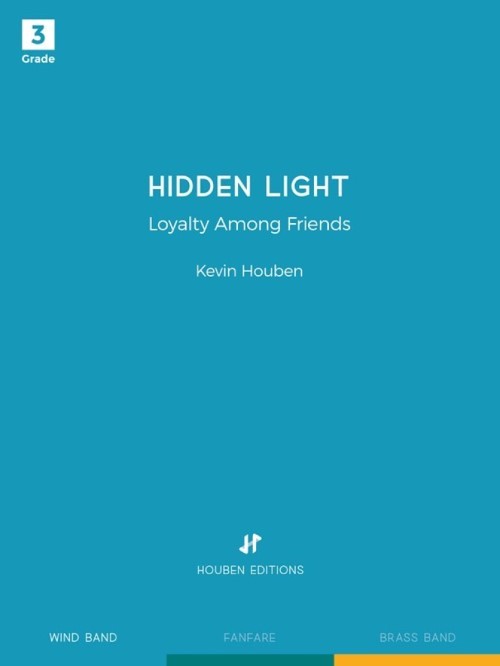 £99.99
£99.99Hidden Light (Loyalty Among Friends) (Concert Band - Score and Parts) - Houben, Kevin
Hidden Light (Loyalty Among Friends), was composed on the occasion of the 75 year membership of Mr Leo Knoben at the Royal Brass Band 'Eendracht Waubach'(NL). From pride and admiration for this exceptional jubilee , but also out of gratitude for his many years of commitment as musician and member of the board, the association chose to have a memorable work written. That assignment resulted in the wonderful choral Hidden Light, for which composer Kevin Houben based himself on the following emotions and oppositions: small vs majestic, submissive vs royal and simplicity vs glory. The work starts in a very modest, dark atmosphere, after which the composition develops into a grand and lofty sound with broad melodies, exploring the full richness and colors of the 'symphonic' wind band. The interesting variety in orchestration - the small, intimate setting at the beginning and the following broad, majestic tutti passages - makes the work very varied, grateful to perform and to listen to. With Hidden Light Kevin Houben has again created an expressive and powerful composition that is highly reflective in nature. This emotional work is a tribute to an exceptional man who has been there for 'his' orchestra all his life, with a warm heart for 'his' musicians. Each musician will recognise the connection and the passion for music in this piece. Duration: 5.30
Estimated dispatch 7-14 working days
-
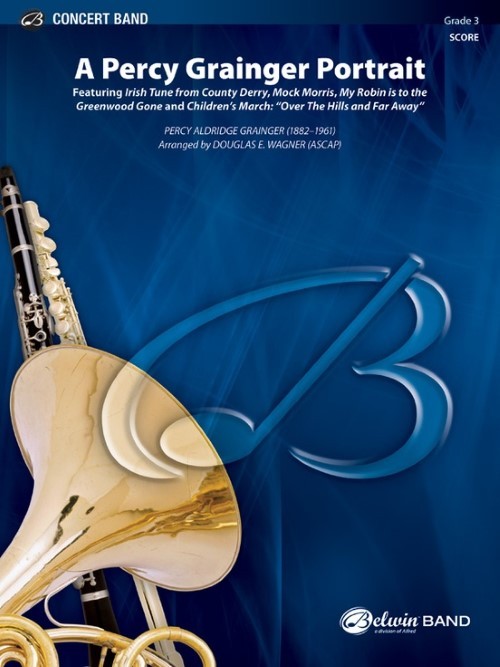 £70.00
£70.00A Percy Grainger Portrait (Concert Band - Score and Parts) - Grainger, Percy Aldridge - Wagner, Douglas E.
The boundless energy and passion for life of Australian-born composer Percy Aldridge Grainger is reflected in the four works included in this eclectic sampling of his music: "Irish Tune From County Derry," "Mock Morris," "My Robin Is To The Greenwood Gone," and closing with "Children's March: Over the Hills and Far Away." Combining Grainger's genius with a contemporary scoring by Douglas Wagner, this one is a sure-fire winner!Duration: 4.30
Estimated dispatch 7-14 working days
-
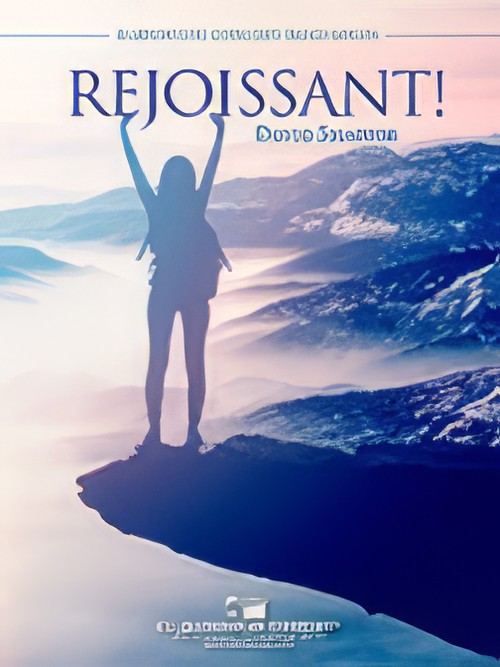 £84.00
£84.00Rejoissant! (Concert Band - Score and Parts) - Shaffer, David
As the title suggests, is a celebration of life's conquering obstacles, specifically of the composer's own personal battle against cancer. Written for the Upper Sandusky High School (Ohio) Wind Ensemble and with the thanks from the composer for the support and opportunity to compose this piece during a very difficult period of time, "Rejoissant!" opens with a slower dramatic fanfare in the brass and percussion. The simple but forceful melody is repeated in several forms throughout the piece, including the beautiful and melodic middle section. This exceptionally emotional and energetic composition is suitable for all concerts and especially festival performances. Duration: 6.00
Estimated dispatch 7-14 working days
-
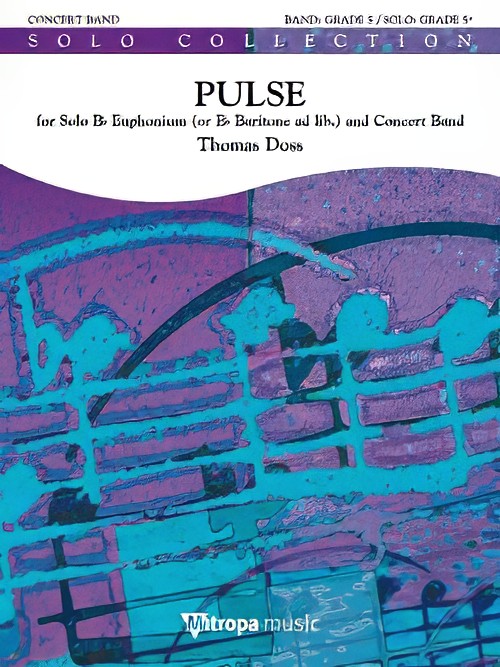 £139.99
£139.99Pulse (Euphonium Solo with Concert Band - Score and Parts) - Doss, Thomas
Pulse is a solo work for baritone or euphonium and concert band. As the title suggests, this piece is very rhythmic in nature. Pulse represents life and vitality, which also characterises the work. The tempo remains virtually constant throughout the piece. Even during the cadenza, played by the baritone, the pulse of the timpani continues to beat steadily. This work is dedicated to the young soloist Felix Geroldinger of upper Austria.
Estimated dispatch 7-14 working days
-
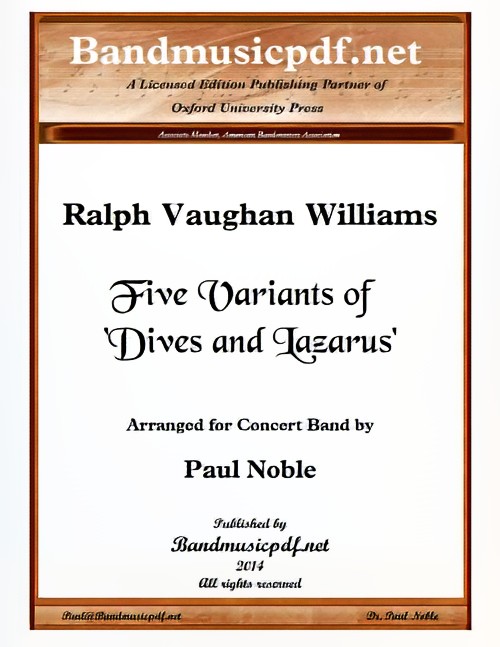 £225.00
£225.00Five Variants of Dives and Lazarus (Concert Band - Score and Parts) - Williams, Vaughan - Noble, Paul
Five Variants of Dives and Lazarus is a Concert Band arrangement from the original work for string orchestra and harp by Ralph Vaughan Williams. The composition is based on the folk tune Dives and Lazarus, one of the folk songs quoted in Vaughan Williams' English Folk Song Suite. The ancient theme on which these variations are based goes back to the sixteenth century, and is known by various titles. Dives and Lazarus is a story told by Jesus in the Gospel of Luke. It tells of an unnamed rich man and a poor beggar named Lazarus. In the Latin Bible, the unnamed rich man is referred to as Dives from dives, the Latin word for rich. This work, based on the tune that Vaughan Williams had loved all his life, which came from the very soil of England, ageless and anonymous, was played at the composer's funeral service in Westminster Abbey on 19th September 1958.
Estimated dispatch 7-14 working days
-
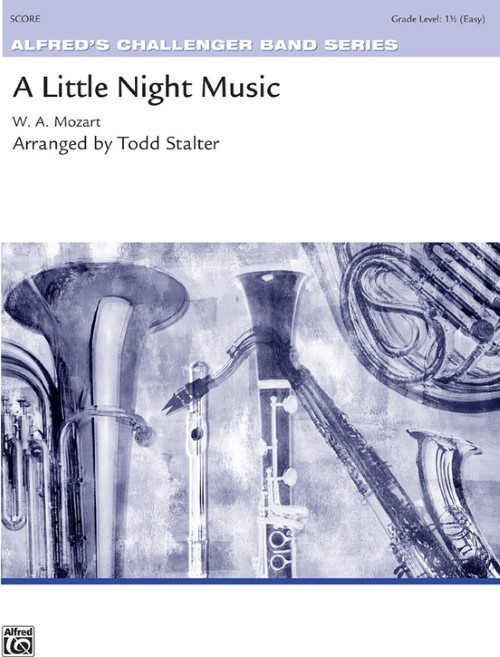 £48.95
£48.95A Little Night Music (Concert Band - Score and Parts) - Mozart, Wolfgang Amadeus - Stalter, Todd
Mozart's Serenade No.13 for strings in G Major, K.525 is commonly referred to as "Eine Kleine Nachtmusik," which stands for "a little serenade," but is more familiar to music lovers as "a little night music." This arrangement uses themes from the first movement, and is cast in a comfortable key and range for young band musicians. Careful attention to the sudden, extreme dynamic changes will make the performance of this piece really come to life.Duration: 2.15
Estimated dispatch 7-14 working days
-
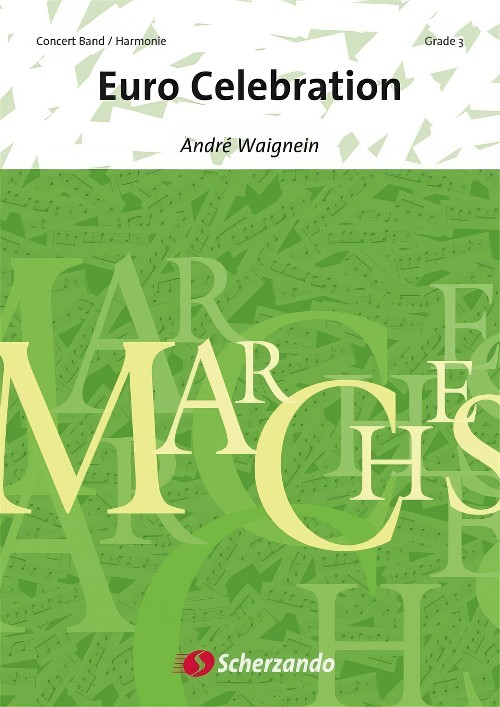 £89.99
£89.99Euro Celebration (Concert Band - Score and Parts) - Waignein, Andre
The Euro is now here to stay! Of course we will have to get used to the new currency, but eventually it will make travel and life much easier throughout Europe. The deciding factor in the Euro's success will be the level of co-operation between the countries involved. Each country will have to work together to make the Euro thrive. While writing this concert march Andre Waigneir had this thought in mind as is indicated by the subtitle - Sine Labore Nihil! (Without work nothing is achieved!) 05:10
Estimated dispatch 7-14 working days
-
 £69.99
£69.99Heaven's Valley (Concert Band - Score and Parts) - Hosay, James L.
This piece is descriptive of day-to-day life and activities in Virginia's splendidly beautiful Shenandoah Valley. An abundance of apple orchards and vineyards drapes the landscape in this heavenly habitat of rural America. The beautiful and popular folk song, Oh Shenandoah, is interwoven with original melodies in this warm and delightful homespun overture.Duration: 4.30
Estimated dispatch 7-14 working days
